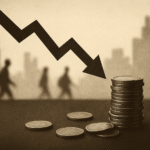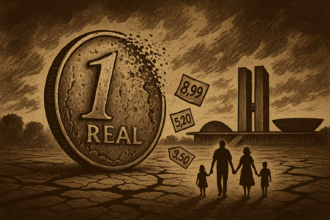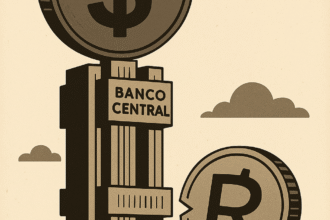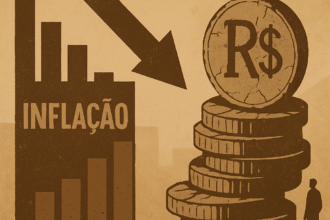When the state prints money—or more precisely, when it artificially expands the monetary base—it is not just messing with numbers. It is redistributing purchasing power, changing incentives and creating deep moral and economic distortions.
Most people believe that printing money “helps the economy.” What they don’t realize is that this process benefits some groups — always those closest to power — at the expense of everyone else.
And worse: without those affected knowing that they are being harmed.
📉 The Cantillon Effect — The Secret to New Money
The Irish Economist Richard Cantillon, in the 18th century, was one of the first to identify what is now called the “Cantillon effect”. He observed that the new money created does not reach the market in a uniform manner.
Whoever gets this money first has a huge advantage:
- Purchase assets, land and services at still old prices.
- Invest, profit, speculate.
- Meanwhile, the rest of the population haven't seen a penny of the new money yet, but already feels the increase in prices.
In other words: Inflation is not just an economic phenomenon — it is a mechanism for redistributing wealth.
🏦 First in line: who benefits from inflation?
- The government
- He is the first and main beneficiary.
- You can spend more without increasing visible taxes.
- Financing works, expanding subsidies, creating programs — all with money that he himself creates.
- And the people still applaud, without realizing that they are being robbed in silence.
- Banks and the financial system
- With the system of fractional reserves, commercial banks multiply the money they receive.
- When the Central Bank injects liquidity, banks profit from abundant credit and low nominal interest rates.
- It's the magic of money from thin air — but with very real profits.
- Large companies connected to the State
- Construction companies, multinationals, lobby groups.
- Access to cheap credit, public contracts and incentives that small and medium-sized businesses will never see.
- A risk-free, state-fed capitalism — the real deal crony capitalism.
- Subsidized and “social” sectors
- NGOs, foundations, public universities, state-owned companies.
- They survive on the vicious cycle of issuance and public spending — and often lobby for more inflation, in the name of “inclusion.”
🧱 Last in line: who loses from inflation?
- The salaried worker
- You see your salary lose purchasing power month after month.
- You can't get a real adjustment.
- Work more, live worse.
- And he is still accused of “not collaborating with the economy”.
- The small entrepreneur
- Does not have access to cheap credit.
- Buys more expensive inputs, but is unable to pass them on to the consumer.
- Unequal competition with large companies that live off subsidies.
- The Retiree and the Conservative Saver
- Your income is fixed — and undervalued.
- Whoever saved money is punished.
- Whoever got into debt is rewarded.
- Youth and the future
- Inflation destroys the basis of national savings.
- Without capital, there is no investment, no sustainable growth.
- The result is a stagnant economy, addicted to monetary expansion and debt.
🎭 The illusion of growth
Governments that print money say they are “heating up the economy.”
But it's not about growth. It's about a bubble fueled by political power.
When money is created out of thin air, prices no longer reflect the reality of costs, scarcity, and productivity.
The market loses its coordinating function. Distortion replaces information.
And in the end, as Rothbard said:
“All inflation ends in recession, stagnation or collapse.”
🔒 Why does the State love inflation?
Because she hide the tax.
- The government does not need to send bills.
- There is no vote.
- There is no resistance.
- There is only loss — constant, silent and invisible.
And the most tragic: the people do not always blame the real person responsible.
Blame the market, the businessman, the supermarket.
And it calls for more state intervention — which will only make the problem worse.
🧭 Conclusion
Printing money is more than “monetary policy.”
It is a power project.
By controlling the currency, the State controls the economy.
And by controlling the economy, it controls you.
Therefore, understand Who wins and who loses with inflation? is the first step to breaking this cycle.
Economic freedom begins where the state monopoly of money ends.
💸 Do you feel like your money is worth less every month?
It's not printing — it's monetary expansion.
👉 Discover how printing money destroys your purchasing power.
📩 Subscribe to the newsletter Economic Radar and receive critical analysis directly to your email.





